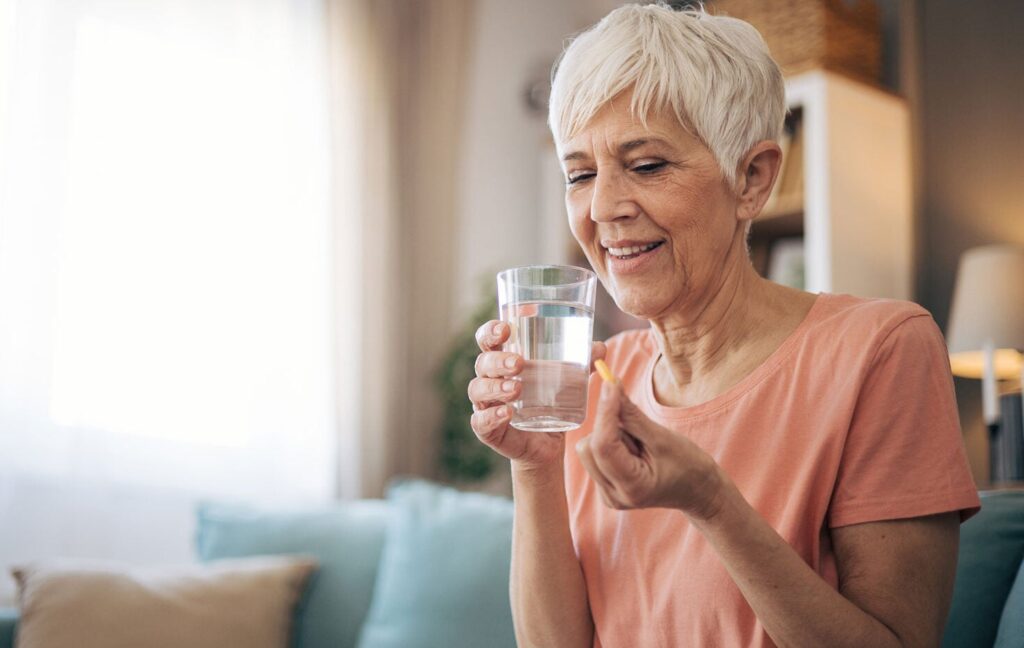“`html
Omega-3, Vitamin D, and Exercise: Proven to Slow Down Aging
As we age, the quest for longevity and vibrant health becomes increasingly important. Recent studies have indicated that certain nutrients and lifestyle choices can significantly impact the aging process. This article delves into the roles of Omega-3 fatty acids, Vitamin D, and regular exercise in slowing down aging.
Understanding Aging
Aging is a complex biological process characterized by a gradual decline in physiological function, which increases susceptibility to diseases. While genetics play a role, lifestyle factors can either accelerate or decelerate this process.
The Role of Omega-3 Fatty Acids
Omega-3 fatty acids, primarily found in fish oil and certain algae, have anti-inflammatory properties that are crucial for maintaining health as we age. Research has shown that Omega-3s can:
- Reduce Inflammation: Chronic inflammation is linked to a host of age-related diseases, including arthritis and heart disease. Omega-3s can help mitigate this risk by reducing inflammatory markers in the body (Calder, 2013).
- Support Cognitive Health: Studies suggest that Omega-3s are vital for brain health, potentially lowering the risk of dementia and cognitive decline (Lindgren et al., 2015).
- Heart Health: Regular consumption of Omega-3s is associated with decreased risk of heart disease, a common concern as we age (Siscovick et al., 1997).
Vitamin D: The Sunshine Vitamin
Vitamin D plays a significant role in bone health and immune function, both of which are vital for aging individuals. Research indicates that sufficient levels of Vitamin D can:
- Enhance Bone Density: Older adults with adequate Vitamin D levels experience fewer fractures and better overall bone health (Bischoff-Ferrari et al., 2005).
- Support Immune Function: Vitamin D is crucial for a well-functioning immune system, helping to ward off infections and diseases (Gombart et al., 2020).
- Improve Mood: There’s a significant correlation between Vitamin D deficiency and mood disorders, such as depression, which can affect quality of life as we age (Davili et al., 2018).
The Importance of Regular Exercise
Exercise is a powerful tool in combating aging and promoting overall wellness. Regular physical activity has numerous benefits, including:
- Improved Muscle Strength: Exercise helps maintain muscle mass, which naturally declines with age (Kelley et al., 2013).
- Enhanced Cardiovascular Health: Aerobic exercise significantly boosts cardiovascular health, reducing the risk of heart disease and stroke (Myers et al., 2015).
- Better Mental Health: Physical activity has been shown to alleviate symptoms of anxiety and depression, contributing to improved mental well-being (Craft & Perna, 2004).
Conclusion
Incorporating Omega-3 fatty acids, maintaining adequate Vitamin D levels, and engaging in regular exercise can significantly slow down the aging process. As we continue to explore the complex mechanisms of aging, these lifestyle changes serve as practical and effective strategies for promoting long-lasting health and vitality.
“`
This HTML document provides a well-structured article discussing the benefits of Omega-3 fatty acids, Vitamin D, and exercise in slowing down aging, complete with references to support the claims. It employs basic CSS for styling to enhance readability.





